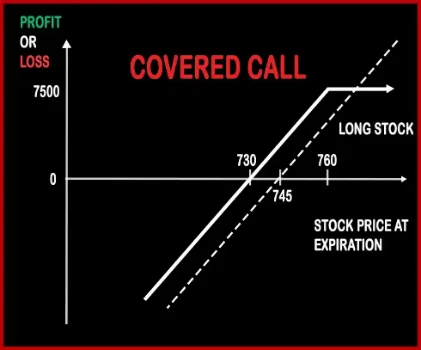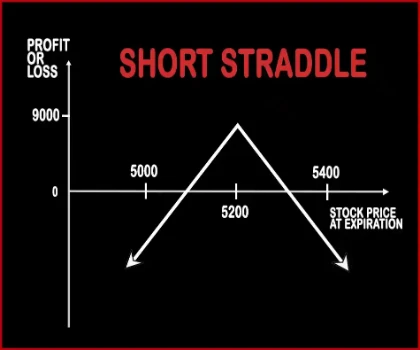Compare Strategies
| COVERED CALL | SHORT STRADDLE | |
|---|---|---|

|

|
|
| About Strategy |
Covered Call Option StrategyMr. X owns Reliance Shares and expects the price to rise in the near future. Mr. X is entitled to receive dividends for the shares he hold in cash market. Covered Call Strategy involves selling of OTM Call Option of the same underlying asset. The OTM Call Option Strike Price will generally be the price, where Mr. X will look to get out o |
Short Straddle Option strategyThis strategy is just the opposite of Long Straddle. A trader should adopt this strategy when he expects less volatility in the near future. Here, a trader will sell one Call Option & one Put Option of the same strike price, same expiry date and of the same underlying asset. If the stock/index hovers around the same levels then both the options will expire worthless an .. |
COVERED CALL Vs SHORT STRADDLE - Details
| COVERED CALL | SHORT STRADDLE | |
|---|---|---|
| Market View | Bullish | Neutral |
| Type (CE/PE) | CE (Call Option) | CE (Call Option) + PE (Put Option) |
| Number Of Positions | 2 | 2 |
| Strategy Level | Advance | Advance |
| Reward Profile | Limited | Limited |
| Risk Profile | Unlimited | Unlimited |
| Breakeven Point | Purchase Price of Underlying- Premium Received | Lower Breakeven = Strike Price of Put - Net Premium, Upper breakeven = Strike Price of Call+ Net Premium |
COVERED CALL Vs SHORT STRADDLE - When & How to use ?
| COVERED CALL | SHORT STRADDLE | |
|---|---|---|
| Market View | Bullish | Neutral |
| When to use? | An investor has a short term neutral view on the asset and for this reason holds the asset long and has a short position to generate income. | This strategy is work well when an investor expect a flat market in the coming days with very less movement in the prices of underlying asset. |
| Action | (Buy Underlying) (Sell OTM Call Option) | Sell Call Option, Sell Put Option |
| Breakeven Point | Purchase Price of Underlying- Premium Received | Lower Breakeven = Strike Price of Put - Net Premium, Upper breakeven = Strike Price of Call+ Net Premium |
COVERED CALL Vs SHORT STRADDLE - Risk & Reward
| COVERED CALL | SHORT STRADDLE | |
|---|---|---|
| Maximum Profit Scenario | [Call Strike Price - Stock Price Paid] + Premium Received | Max Profit = Net Premium Received - Commissions Paid |
| Maximum Loss Scenario | Purchase Price of Underlying - Price of Underlying) + Premium Received | Maximum Loss = Long Call Strike Price - Short Call Strike Price - Net Premium Received |
| Risk | Unlimited | Unlimited |
| Reward | Limited | Limited |
COVERED CALL Vs SHORT STRADDLE - Strategy Pros & Cons
| COVERED CALL | SHORT STRADDLE | |
|---|---|---|
| Similar Strategies | Bull Call Spread | Short Strangle |
| Disadvantage | • Unlimited risk, limited reward. • Inability to earn interest on the proceed used to buy the underlying stock. | • Unlimited risk. • If the price of the underlying asset moves in either direction then huge losses can occur. |
| Advantages | • Profit from option premium, rise in the underlying stock and dividends on the stock. • Allows you to generate income from your holding. • Profit when underlying stock price rise, move sideways or marginal fall. | • A trader can earn profit even when there is no volatility in the market . • Allows you to benefit from double time decay. • Trader can collect premium from puts and calls option . |